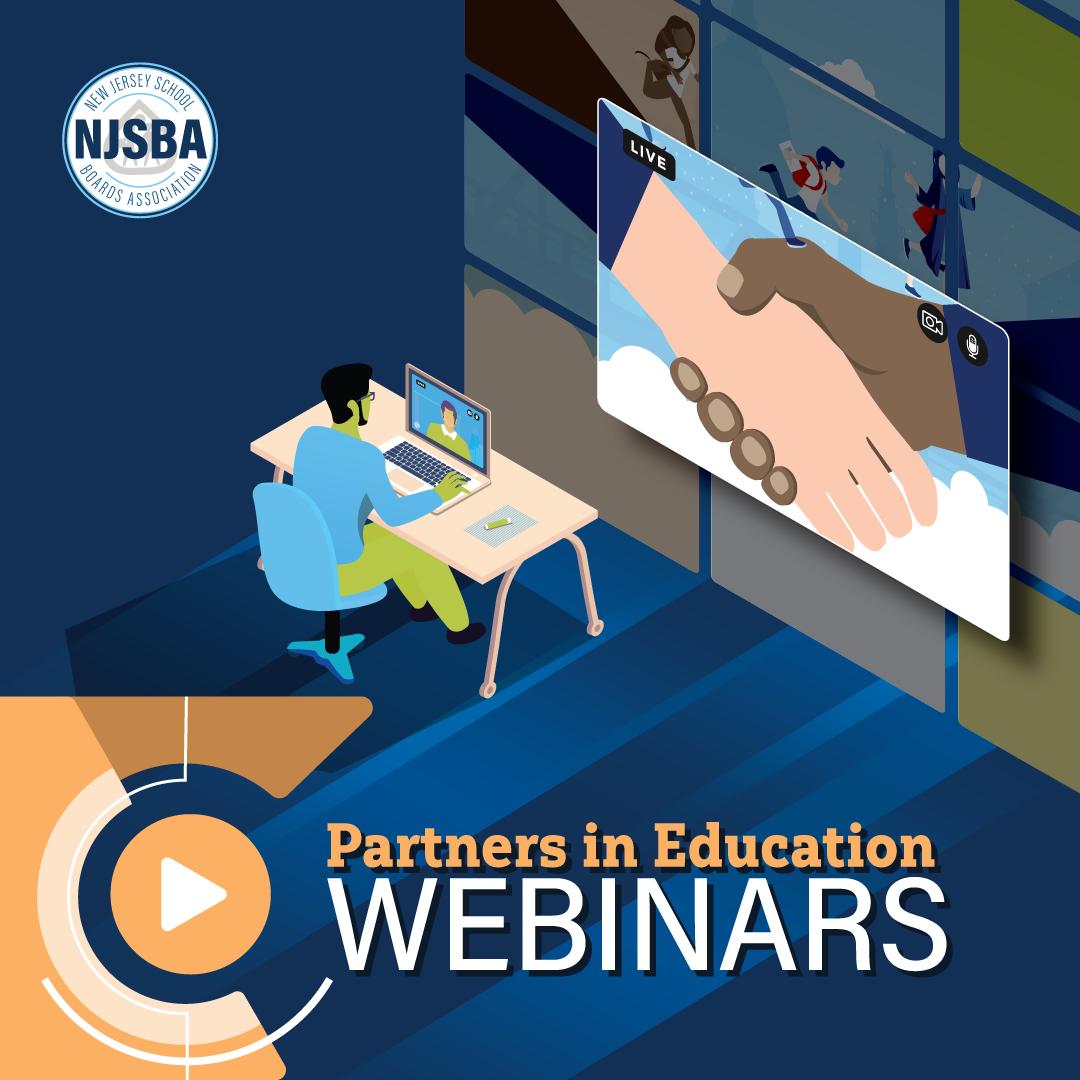Resolution in Recognition of the Month of the Military Child in New Jersey
The State Board passed a resolution recognizing April as the month of the military child. The Board encouraged school districts to provide support to children of service members as they transition between schools to address their distinct needs and prepare them to graduate as well-rounded citizens.
Resolution in Recognition of School Library Month in New Jersey
The State Board passed a resolution recognizing April as School Library Month. The board recognized school libraries as the heart of their schools, promoting literacy, equity, diversity and inclusion and serving as a center for voluntary inquiry through open access to resources to foster students’ growth and development. The resolution also recognized school library media specialists who provide literature appreciation activities, while guiding and encouraging recreational reading honoring students’ right to read.
Resolution in Recognition of Autism Acceptance Month in New Jersey
The board passed a resolution in recognition of April as Autism Acceptance Month. The board noted that raising awareness about autism is essential in promoting early diagnosis, intervention, and access to appropriate resources and support. The board recognized that creating an inclusive and supportive environment for individuals with autism involves promoting understanding, empathy, and acceptance within schools, workplaces, homes, and communities.
School Performance Reports
The board was updated about the 2023-24 School Performance Reports. These reports include assessment and accountability results, as well as information such as data regarding student demographics; participation and performance on the PSAT, SAT, and ACT tests; course participation including in Advanced Placement (AP), International Baccalaureate (IB), and dual enrollment courses; chronic absenteeism; discipline data; staff information; graduation rates; and district narratives. Highlights included:
Graduation Rate
The 91.3% four-year graduation rate is the highest rate since New Jersey implemented the adjusted cohort graduation rate calculation in 2011. The graduation rate also increased for specific student groups such as economically disadvantaged students, which increased from 85.4% in 2022 to 87.1% in 2024, and multilingual learners, which increased from 71.9% in 2022 to 78.9% in 2024.
AP Results
Advanced Placement (AP) results released by the College Board in February rank New Jersey second in the nation for the percentage of schools offering at least one AP course, at 95.2%.
Industry Credentials
The number of students earning industry-valued credentials has increased in each of the last four years. Industry-valued credentials are certifications or licenses that are recognized by specific industries, which increase a student’s earning potential and demand for them when they enter the job market. In 2023-2024, more than 9,600 students earned an industry-valued credential, more than triple those earned in 2019-2020. In partnership with the New Jersey Department of Labor and the Credential Review Board, the NJDOE has expanded the number of credential options available; the NJDOE now recognizes 129 industry-valued credentials across 13 career clusters.
Chronic Absenteeism
The data also highlights areas of continued focus for the Department, such as the 2023-2024 K-12 chronic absenteeism rate of 14.9%, which is a decrease from 16.6% in 2022-2023, but remains above the pre-pandemic rate of 10.6% in 2018- 2019.
Standards and Assessment
The board heard more about a proposal to update the regulations concerning Standards and Assessment. The proposed regulations would update the existing rules and remove outdated terminology such as indicators, 21st century themes, skills, and outcomes. The references to 21st century themes, skills, and outcomes originated from New Jersey’s commitment to the Partnership for 21st Century Skills, which was an organization that ceased significant operations in 2010. While the concepts of 21st Century Skills are still deeply infused within the NJSLS, the terminology is outdated. Along with updating the terminology, the proposed regulations will ensure alignment with federal and state laws and regulations, making certain that instruction meets student needs preparing them for the modern workplace.
Student Transportation
The board continued its discussion about updates to the student transportation regulations. These updates will clarify the calculation of aid-in-lieu payments for nonpublic school student transportation. Additionally, the proposed new rules will effectuate the law which allows school districts to designate school personnel to drive students to and from school in private or district-owned vehicles while exempting them from the certifications and standards that apply to school buses and drivers. The proposed rules will also establish procedures needed to implement the nonpublic school consortium transportation program.
Educator Preparation
The board began discussing updates to the rules concerning educator preparation. The proposed rules will ensure alignment with recently enacted laws, including:
- Eliminating the requirement to complete a commissioner-approved test of basic reading, writing, and mathematics skills to obtain an instructional certificate;
- Creating a paraprofessional educator preparation pathway to expedite the process for paraprofessionals and instructional assistants to obtain certificates of eligibility with advanced standing (CEAS) in specific endorsement areas;
- Establishing the computer science endorsement and requiring the endorsement for educators teaching computer science in grades nine through 12;
- Eliminating the requirement to complete a commissioner-approved performance-based assessment to obtain a CEAS, a certificate of eligibility (CE), or a standard certificate, and requiring educator preparation programs to establish their own performance-based assessment;
- Requiring all educator preparation programs for an instructional certificate to include six credits of classroom instruction, clinical experience (including student internships), or a combination of both, in special education;
- Requiring all teaching certification candidates who have completed a commissioner-approved educator preparation program to complete a course or training on culturally responsive teaching, which recognizes the importance of including students’ cultural references in all aspects of learning and uses researched-based teaching strategies to meaningfully connect school lessons with students’ cultures, languages, and experiences;
- Requiring educator preparation programs that train educators specifically for the teacher of students with disabilities endorsement to the instructional certificate to include coursework on autism spectrum disorder and comprehensive, evidence-based instructional practices to address the educational strengths and needs of students with autism; and
- Permitting educator preparation programs to accept any number of credit hours from accredited community colleges needed for certification.



